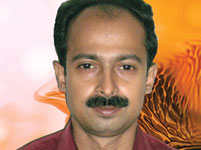
Before I can discuss anything about various research frontiers in the area of quality engineering and management, it becomes absolutely necessary to discuss the modern era definition and concept of ‘quality’. Starting from 1920 various definitions and concepts have evolved in the area of quality engineering and management. From the customers perspective, ‘fitness for use’ and ‘conformance to standards’ may be considered as the first generation definition of quality. ‘Delighting customer’ may be considered the second generation definition. Another definition in the second generation that revolutionized the field of quality engineering was ‘quality loss function’ approach proposed by Taguchi. ‘Zero defects’ and quality expressed in term of ‘parts per million opportunities’ started the modern era of defining ‘quality’ in term of ‘reduction of variability’. In my understanding, simultaneously considering ‘waste reduction’ and ‘variability reduction’, which leads to ‘delighting customers’ is the recent definition of ‘quality’. However, the modern definition of ‘quality’ heavily relies on statistics and mathematics from the standpoint of ‘variability reduction’. Within this domain, the area which has enormous scope for applied research in the near future is multiple response quality characteristic optimization. Quantitative approach for response surface design and exploring the Taguchi method for multivariate problem will be of immense interest for many researchers and practitioners. In this context, it is to be mentioned that in any typical quality engineering problem in the manufacturing environment, the main objective is to mathematically model the process and product design and thereby determine the optimal process, and product design setting. Therefore, ‘quality’ may be redefined as modeling and optimization of the process, product, or design from the context of manufacturing. Various statistical data driven regression tools (linear or nonlinear) are used for modeling purpose. Researchers also may prefer artificial neural network based nonlinear modeling approach for multivariate problems in certain situations. Based on the underlying process or product or design model(s), conventional response surface optimization approach or any other unconventional heuristics or metaheuristics may be used, based on its suitability for the problem. It is to be noted that metaheuristics usually provide multiple solutions, which is more practical in industrial situation than to restrict and search for exact solution or process or product settings. In such a situation, sensitivity analysis also plays a pivotal role to determining the final process or product or design settings.
While we discuss about variability reduction, we generally talk in terms of process, product, or design quality improvement. However, in the area of detection, control and process capability some of the other open areas of research are sampling inspection plan for multiple quality characteristics, multivariate process capability analysis, and control charting techniques. Measurement system analysis is another important area of research, which needs considerable attention in near future, as quality of data is an important component for any quantitative research in the area of quality engineering and management.
In the area of ‘waste reduction’ concept, developing a suitable methodology to efficiently implement lean in services is another area of interest for researchers. Service quality and performance has always been a continual research endeavor in recent times.
To sum up, it is the passion for doing it right the first time, adding value to the customer without increasing cost, accuracy, and also precision that ultimately drive the researchers and practioners in the area of quality engineering and management.
The author is Assistant Professor, Shailesh J Mehta School of Management, IIT-Bombay. He can be reached at indrajitmukherjee@iitb.ac.in